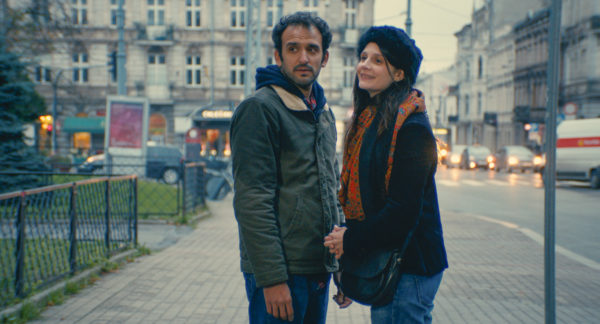The children and grandchildren of Holocaust survivors usually have some kind of an affinity, if only a superficial one, with their parent’s or grandparent’s homeland. This is particularly true in the case of Poland, whose prewar Jewish population of 3.3 million was virtually annihilated by the Nazis and their local collaborators.
Elise Otzenberger draws on this conceit in her French-language movie, My Polish Honeymoon, which will be screened at the Toronto Jewish Film Festival on May 9 and May 11.
Adam (Arthur Igual) and his wife, Anna (Judith Chemla), a Parisian couple descended from Polish Jews, decide to visit Poland to attend a ceremony in a small town marking the 75th anniversary of a Nazi atrocity that resulted in the extermination of its Jewish inhabitants.
Anna’s mother, Irene (Brigitte Rouan), can’t understand why they want to set foot in Poland. As far as she’s concerned, Poland is antisemitic. Period.
Certainly, Anna is more eager than Adam to explore Poland. She has a romanticized view of it, while he considers it just another country in Central Europe. Given their polar opposite attitudes, one must wonder how they’ll get along on the trip.
As they check into their hotel in Krakow, the desk clerk says they might be interested in going to a Jewish concert. Adam is offended by his presumption that he’s Jewish. Anna, who’s glad to be in Poland, has no problem with the clerk’s suggestion.
Wandering around Kazimierz, the restored Jewish quarter filled with restaurants, bars, shops and mostly disused synagogues, Anna is enchanted by its old-world atmosphere. Adam is hardly impressed, dismissing the atmospheric quarter as a “Disneyland of the Holocaust.”

Anna continues to profess her attachment to Poland, prompting Adam to say, “We’re more Jewish than Polish.”
Adam’s tolerance of her rose-colored view of Poland snaps as they tour a town where her grandmother lived. Declaring he’s sick of her “psychosis” and obsession with Poland, Adam says he should have married a non-Jewish woman. To which she replies, “I married an antisemite.”
Anna’s frustration is aimed not only at Adam but at herself. She’s upset that she knows so little about her family’s roots in Poland.
Much to their surprise, Anna’s mother shows up in Poland. This gives them an opportunity to bond and visit Jewish places of interest. In the meantime, Adam attends the ceremony that brought him to Poland in the first place. A rabbi’s melancholic chant in the old Jewish cemetery adds poignancy to the occasion.
Eventually, Anna learns that the past, however romantic she thinks it may have been, is dead and buried. For Anna, it’s an epiphany that matures her.
My Polish Honeymoon, while competently crafted, holds one’s interest only to a degree. Chemla and Igual deliver fine performances, but the film is of middling quality.